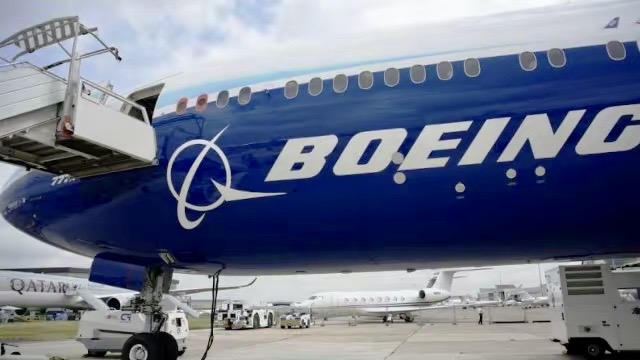
Recently, the global aviation manufacturing giant Boeing announced a shocking plan to lay off approximately 17000 jobs worldwide. This news was like a bombshell, instantly causing a huge uproar in the global aviation manufacturing industry. After all, against the backdrop of sustained high demand for global aviation manufacturing, Boeing's decision appears particularly abrupt and unusual. So, why did Boeing choose to carry out large-scale layoffs at this time? What impact will this decision have on itself and the global aviation manufacturing industry?
As a leading enterprise in the global aviation manufacturing industry, Boeing's every major decision is highly anticipated. In recent years, Boeing has encountered unprecedented difficulties. From the trust crisis caused by the safety problems of the 737 MAX series aircraft, to the huge impact of the COVID-19 on the global aviation industry, to the various problems caused by the company's poor internal management, Boeing's reputation and financial situation have been seriously damaged. In this context, Boeing had to take a series of measures to reduce costs and improve operational efficiency. Layoffs are undoubtedly the most direct and effective way among them. Through layoffs, Boeing can reduce labor costs, improve profitability, and cope with the current challenges.
Boeing's layoff plan is in stark contrast to the current high demand in global aviation manufacturing. With the recovery of the global economy and the improvement of people's living standards, the demand for air transportation continues to grow. This not only promotes the rapid development of the global aviation manufacturing industry, but also provides a broad market space for aviation manufacturers such as Boeing. It was in such a market environment that Boeing chose to lay off employees. This decision is not only surprising, but also raises widespread doubts and concerns. After all, against the backdrop of high global demand for aviation manufacturing, Boeing should have increased investment and expanded production scale to meet market demand. The reality is that Boeing has to lay off employees to reduce costs and cope with difficulties.
Boeing's layoff plan will undoubtedly have a profound impact on itself and the global aviation manufacturing industry. Firstly, for Boeing, layoffs will directly lead to a reduction in the number of its employees and a decrease in labor costs. This will also have a certain impact on its production capacity and operational efficiency. After all, employees are important resources for enterprises, and their departure will inevitably affect the normal operation and development of the enterprise. Secondly, for the global aviation manufacturing industry, Boeing's layoff plan will also trigger a series of chain reactions. On the one hand, Boeing's layoffs will reduce its market share and competitiveness in the global aviation manufacturing market; On the other hand, this will also provide opportunities for other aviation manufacturers to accelerate their pace of development and expansion. In addition, Boeing's layoff plan will also have a certain impact on the global aviation industry chain. After all, Boeing is an important part of the global aviation industry chain, and its layoffs will directly affect the production and operation of upstream and downstream enterprises. This may lead to turbulence and adjustment throughout the entire industry chain, resulting in profound impacts on the entire industry.
I think Boeing's layoff plan is a helpless move, but it is also a reality that must be faced. In the current market environment, Boeing needs to take all measures to reduce costs and improve operational efficiency to cope with the challenges it faces. However, layoffs are not the fundamental solution to the problem. Boeing also needs to start from product quality, technological innovation, market expansion and other aspects to comprehensively enhance its competitiveness and market share.
For the global aviation manufacturing industry, I believe this incident also reminds us to remain vigilant and crisis aware at all times. After all, the market environment is constantly changing, and companies need to constantly adjust and optimize their strategies and tactics to adapt to market changes and development. Only in this way can we stand undefeated in the fierce market competition.

Recently, a series of corporate borrower fraud cases have been exposed on Wall Street, implicating institutions such as Jefferies, First Brands, Zions Bank, and Western Union Bank, with massive loan losses triggering market panic.
Recently, a series of corporate borrower fraud cases have b…
According to a report citing the Messenger Post of Papua Ne…
In the latest meeting minutes released by the Bank of Japan…
November 4th witnessed a "day of terror" in the cryptocurre…
On October 26th local time, Tesla's CEO Elon Musk announced…
When the US National Nuclear Security Agency fell into an "…